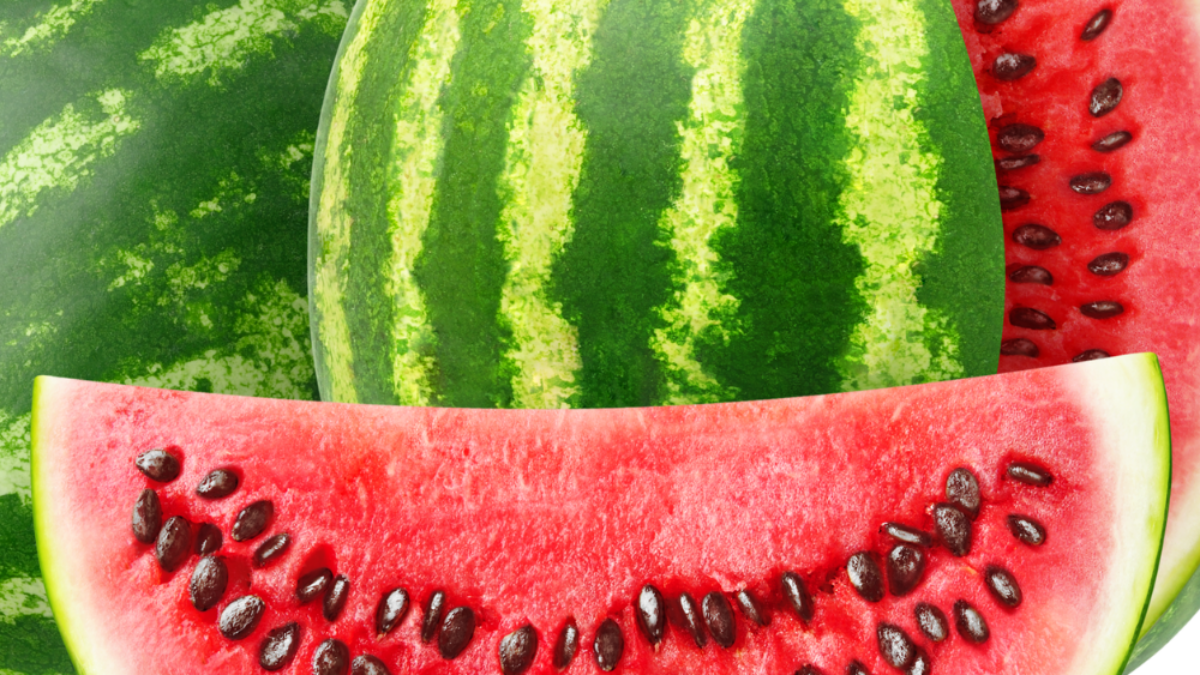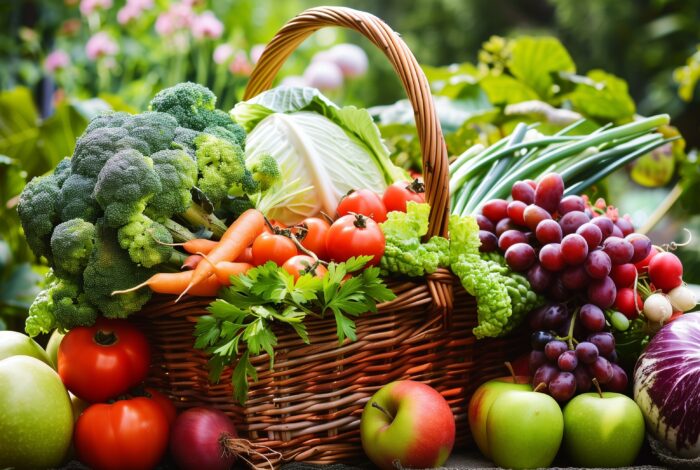Watermelon, one of the most popular summer fruits in Greece, holds a prominent place in the Greek Mediterranean diet.
Due to its refreshing and sweet flavour, watermelon is an ideal fruit for hot summer days, offering significant nutritional benefits.
In addition to being delicious, watermelon has high nutritional value.
| Nutritional Value of Watermelon | per serving: 1 cup, cut into cubes (152 g)1 | RDI per serving2 | |
| Kcal | 45.6 | 2.3% | |
| Fat (g) | 0.2 | 0.3% | |
| Saturated fat (g) | 0.02 | 0.1% | |
| Carbohydrates (g) | 11.6 | 4.2% | |
| Fiber (g) | 0.6 | 2.2% | |
| Sugar (g) | 9.4 | 10.5% | |
| Protein (g) | 0.9 | 1.9% | |
| Salt (g) | 0.0 | 0.0% | |
| 1 Values are based on the U.S. Department of Agriculture (USDA) nutrient database. 2 The percentage of Recommended Daily Intake (% RDI) shows how much of the recommended daily intake of each nutrient is contained in a single serving. Calculations are based on U.S. Food and Drug Administration (FDA) daily values, based on 2,000 Kcal per day for an average healthy adult. Depending on an individual’s energy needs, % RDI can be lower or higher. | |||
Specifically, a single serving – that is, one cup of cut fruit (153[CA1] grams) – contains only 46 Kcal and 11.6 grams of carbohydrates, most of which is natural sugars.
Watermelon is approximately 90% water and contains almost no fat or cholesterol.
Watermelon is also a good source of vitamins, including vitamins A and C, and trace elements such as copper.
Watermelon is an excellent source of carotenoids, such as β-carotene, β-cryptoxanthin, lutein, and zeaxanthin, and primarily lycopene.
Lycopene is a potent antioxidant belonging to the carotenoid family and helps neutralise reactive oxygen species. In fact, lycopene gives watermelon its characteristic red colour.
Incorporation of watermelon into our diet has been associated with a number of health benefits.
Specifically, watermelon may have anti-cancer effects due to its high lycopene content. Although more studies are required, lycopene appears to protect against the occurrence of prostate cancer.[1]
Watermelon’s nutritional profile also contributes to good heart health. Watermelon consumption appears to lower blood pressure, a key cardiovascular risk factor. This effect may be due to the presence of citrulline and arginine.
L-citrulline is an amino acid that, in the kidneys, is converted into arginine, an amino acid rich in nitrogen and an important factor in the synthesis of nitric oxide. Nitric oxide (NO) is a chemical compound that plays a key role in the dilation of blood vessels, which improves blood circulation and lowers blood pressure.[2]
Summing up, when consumed as part of a healthy and balanced diet, watermelon can have significant health benefits.
BIBLIOGRAPHY
[1] Etminan M, Takkouche B, Caamano-Isorna F. The role of tomato products and lycopene in the prevention of prostate cancer: a meta-analysis of observational studies. Cancer Epidemiol Biomarkers Prev 2004 13:340–345.
[2] Figueroa Α, Sanchez-Gonzalez Μ, Wong Α, Arjmandi Β. Watermelon extract supplementation reduces ankle blood pressure and carotid augmentation index in obese adults with prehypertension or hypertension. Am J Hypertens. 2012 25(6):640-3. doi: 10.1038/ajh.2012.20.










